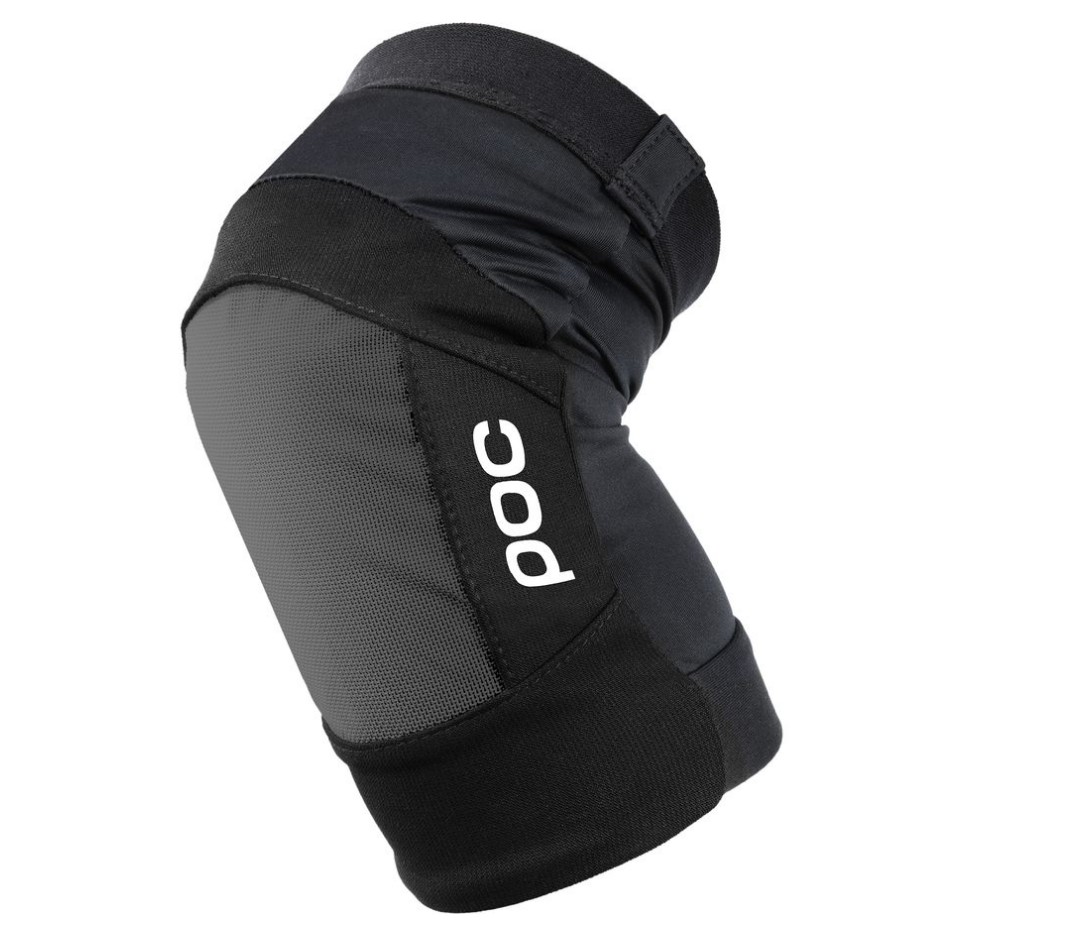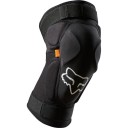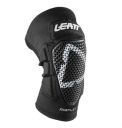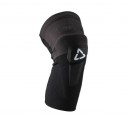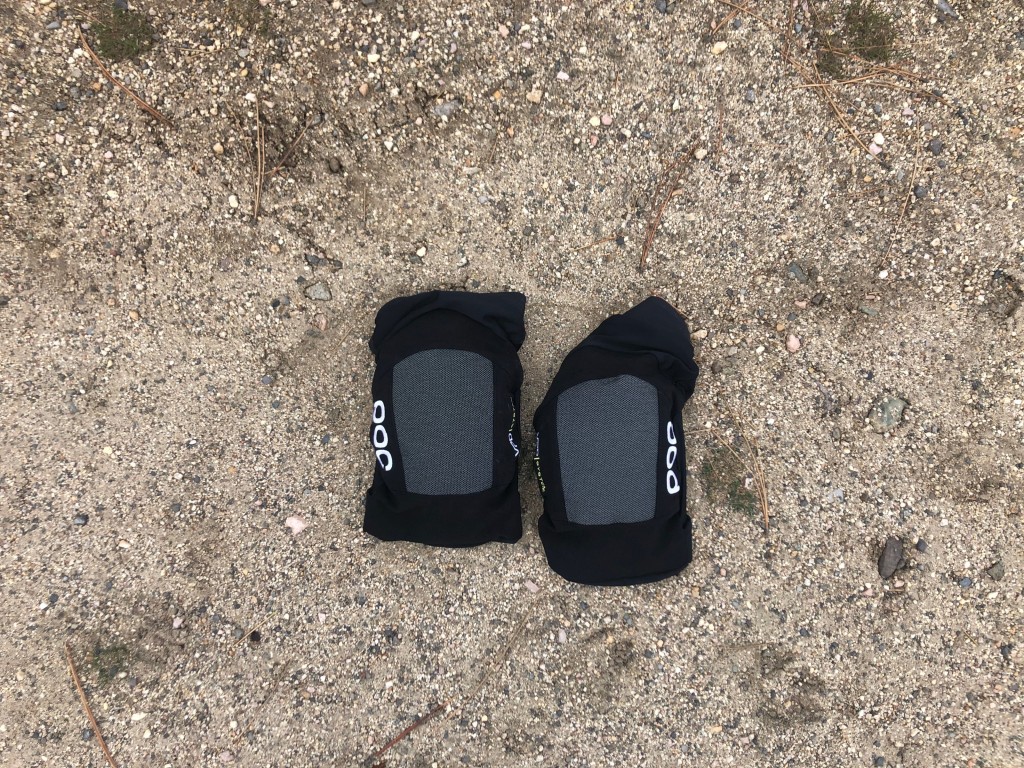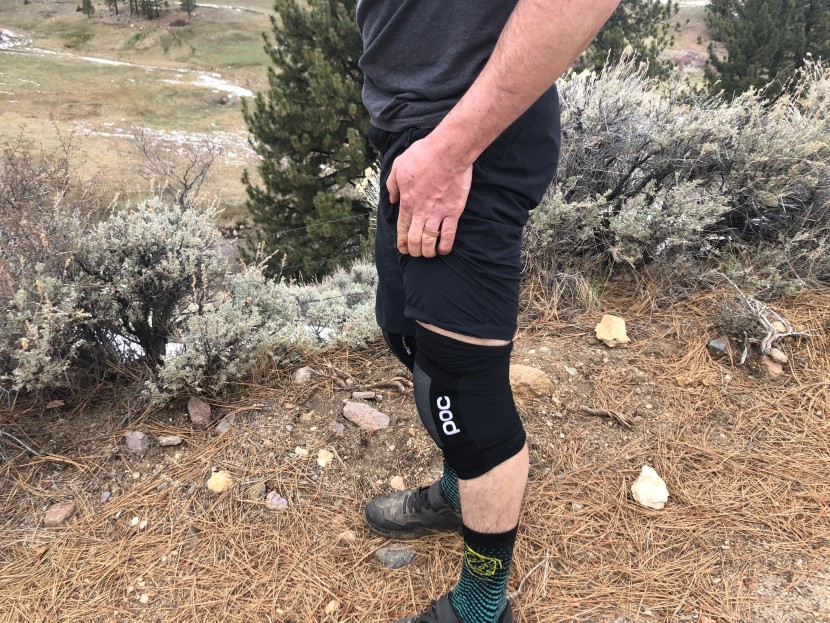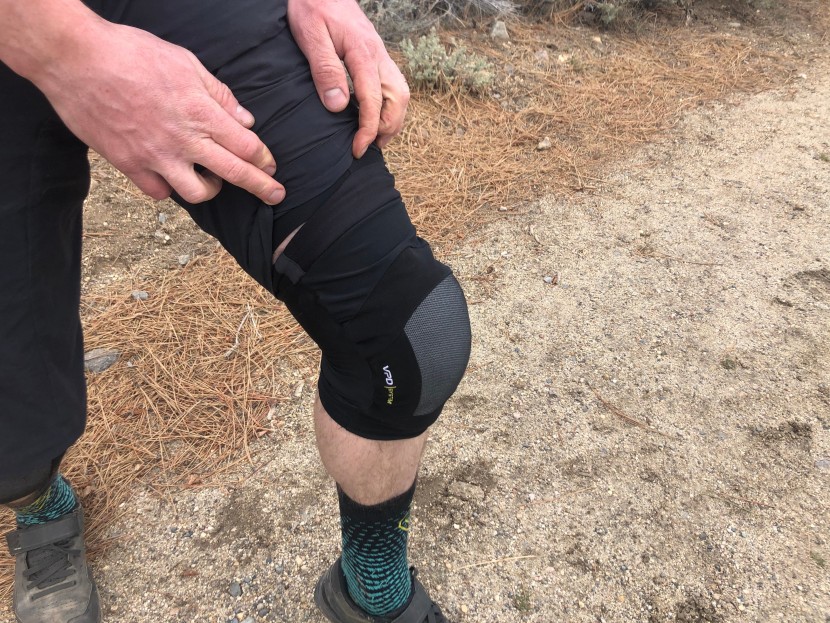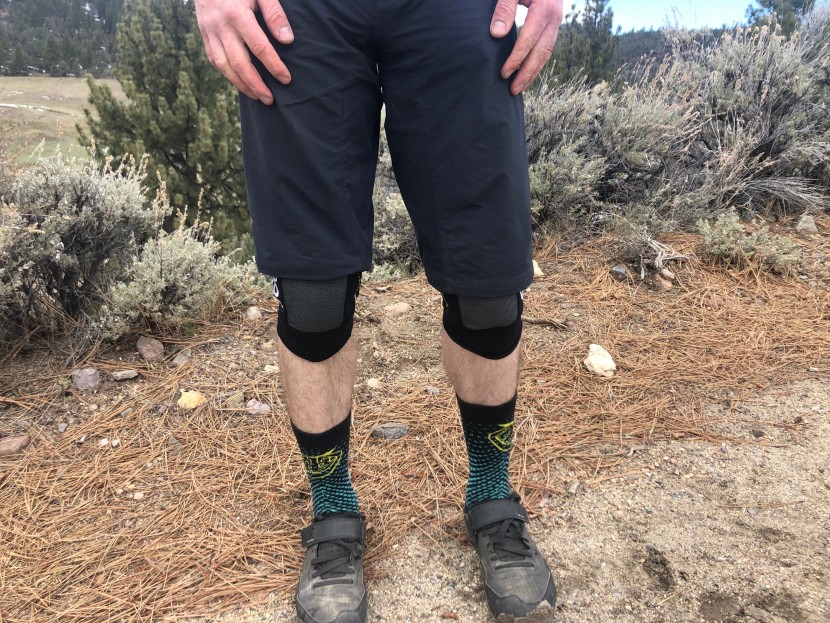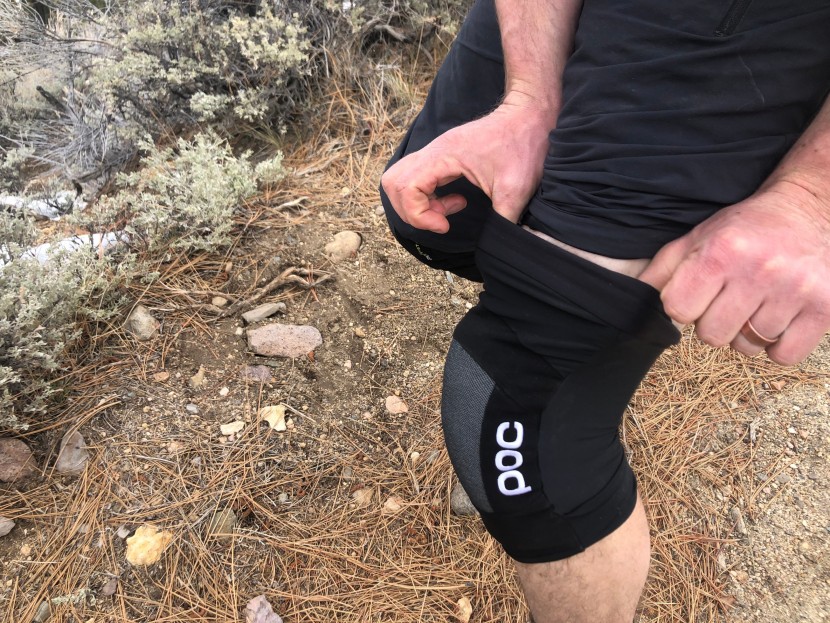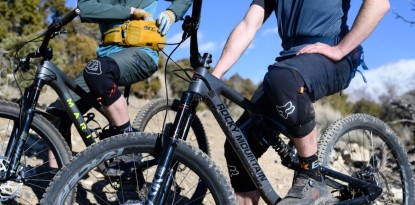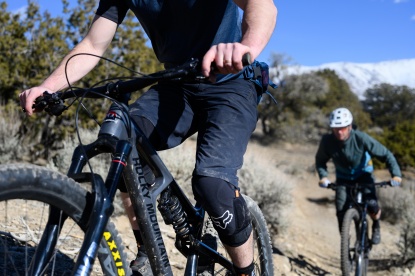POC Joint VPD System Review
Our Verdict
Compare to Similar Products
 This Product
POC Joint VPD System | |||||
|---|---|---|---|---|---|
| Awards | Best Overall Mountain Bike Knee Pads | Best for Downhill Riding | Best Blend of Protection and Pedal-Friendliness | Another Great Mid-Duty Knee Pad | |
| Price | $103.35 at Amazon Compare at 3 sellers | $52.22 at Backcountry Compare at 2 sellers | $85.49 at Evo Compare at 3 sellers | $100 List $63.98 at Amazon | $120 List $59.99 at Amazon |
Overall Score  |
|||||
| Star Rating | |||||
| Bottom Line | A premium knee pad that pedals well and is impressively comfortable | A dialed set of knee pads that deliver a fantastic fit and substantial protection while retaining pedaling abilities | A burly set of knee pads that are exceptionally comfortable and offer a tremendous fit | Leatt strikes a perfect balance of protection and pedal-friendliness with these quality pads | Practical pedal-friendly knee pads for trail and all-mountain riders |
| Rating Categories | POC Joint VPD System | Fox Racing Launch D3O | Fox Racing Launch P... | Leatt Airflex Pro | Leatt Airflex Hybrid |
| Protection (30%) | |||||
| Fit and Comfort (20%) | |||||
| Pedal Friendliness (20%) | |||||
| Ventilation and Breathability (20%) | |||||
| Durability (10%) | |||||
| Specifications | POC Joint VPD System | Fox Racing Launch D3O | Fox Racing Launch P... | Leatt Airflex Pro | Leatt Airflex Hybrid |
| Weight (per pair, size L) | 346 grams | 445 grams | 410 grams | 256 grams | 363 grams |
| Padding Material | VPD (visco-elastic polymer dough) | D3O polyurethane | Removable Hard Cap with D30 Padding | AirFlex impact gel | AirFlex gel, Sliding hard shell knee cup |
| Body Material | High-tenacity nylon | 20% nylon, 40% neoprene, 5% polyester, 5% spandex | 30% neoprene, 25% polyurethane, 18% thermoplastic polyurethane, 14% nylon, 13% polyester | Moisture Cool, Airmesh | Knitted base layer, MoistureCool and AirMesh fabrics |
| Adjustments? | No | No | Adjustment straps + removable hard cap | No | No |
| Safety Certifications | CE EN 1621-1 | CE EN 1621-1 Level 1 | EN1621-1:2012 | CE EN 1621-1 | CE EN 1621-1 |
| Available Sizes | S - L | S - L | S, M, L | S - XXL | S-XXL |
Our Analysis and Test Results
The Joint VPD System is a rock-solid knee pad with impressive comfort and protection. Despite a few quirks, these pads put up an admirable fight against the best of the best in our test class.
Performance Comparison
Protection
The Joint VPD System uses POC's visco-elastic polymer dough for protection. Yes, visco-elastic polymer dough is a mouthful, and that's why POC simply refers to this material as VPD. VPD is a soft and pliable material that firms up upon impact. The padding really is amazingly soft and flexible compared to other pads in this test class that utilize a harder plastic that doesn't bend as freely. The VPD material is approximately .25-.5-inches thick.
The protective material occupies a fair bit of space on the front of these knee pads, about in line with other trail-oriented pads. We didn't intentionally crash while wearing these, but we did some primitive testing involving the knee pads and pavement. It is clear the VPD material does firm up a bit on impact. It's still quite apparent you are smashing your knee, but the protective layer undoubtedly works.
Fit and Comfort
Fit and comfort is a little bit of a double-edged sword. We love the comfort level of these knee pads. That said, the fit is a little funky and could be improved.
Let's start with the good. These knee pads are very comfortable. The materials inside the knee sleeve are exceptionally pleasant against the skin. Whether you are driving to trail, waiting for your friend who is always late, or shredding singletrack, these are very comfortable knee pads. The primary factor is the pliability and softness of the VPD patch. There are absolutely no pressure points. Other pads have plastic armor that can kind of jab your legs at times. Not the case with the Joint VPD System, just pillowy goodness.
The fit, however, is a little funky. Our test pads were size large, and they felt a little larger than all of the other pads in our test. This issue mostly manifested itself with the top part of the sleeve slipping down. The Joint VPD doesn't use any closure device, they are just a straight sleeve with some rubbery traction patches to try and hold it in place. Fit issues can be a very individual issue, and we can't knock on POC too hard for these fit quirks. These pads might fit perfectly for you.
Pedal Friendliness
The Joint VPD System is a pedal-friendly pad. We would slot them firmly into the trail-riding category — they aren't meant for hard-charging enduro riding. They certainly aren't the super minimalist, ultra-light, slim, lighter duty knee pads. They also are definitely not gravity-focused brawlers. As a result, they pedal just fine for the average 1-2.5 hour ride.
The VPD plate flexes nicely and doesn't restrict pedal motion at all. We did some fairly lengthy rides with these knee pads and experienced no chafing or irritation on the knee. While other pads with a firmer armor patch irritated our knees, these pads stayed ultra-comfortable. One quirk is that the VPD patch can slightly lift off of the rider's knee when the leg is at the bottom of the pedal stroke. This is probably unavoidable, but it can look a little funky when gazing down at the knee.
Ventilation and Breathability
The Joint VPD System offers about average levels of ventilation. They are neither overly steamy nor particularly breezy.
The sleeve material on the Joint is a little more robust than some other pads we have tested. The thicker material may stand up better to being put on and taken off hundreds of times during the lifespan of the pads. That said, thicker and heavier material is often detrimental to ventilation. The armor patch and the border around the armor patch are perforated and allow a decent amount of air through. It can be difficult to gauge exactly how well the perforations work. We can say, we have ridden in far breezier knee pads. We have also ridden in much hotter pads. They land about in the middle.
Durability
Durability is a bit of a mixed bag with the Joint VPD pads. As we mentioned, the knee sleeve feels thick and substantial. We took these pads on and off dozens of times, and everything is still functioning as it should. We do not expect these to unravel on us after six months of riding.
However, we are curious about how well these pads will stand up to crashes. POC claims the high-tenacity polyamide yarn is abrasion-resistant and can withstand some abuse. We have no doubt that crashing on some slippery East Coast roots or PNW mud wouldn't be a huge deal. That said, if you dumped these on some high speed gravely trails, rock, or hardpack, we could see the material tearing more easily than other pads that use plastic or rubberized armor. The soft, pliable, armor is what makes these so tremendously comfortable. But this may also limit the durability in the event of a mid-to-high speed crash.
Value
These are the most expensive knee pads in our review. In fact, they are almost triple the price of some of the other pads we have tested. That being said, the extremely high level of comfort and clever protection helps justify the price tag. While they aren't quite perfect, the Joint VPD System pads are well-designed, and it is clear that POC took their time during the engineering process. If you are a trail rider looking for maximum comfort, these pads will deliver a strong value. If you are looking for a knee pad to survive dozens of crashes, your money may be better spent elsewhere.
Conclusion
The POC Joint VPD System are high-end pads that are very comfortable. The plush and pliable armor is quite pleasant against the knee whether you're grinding it out in the saddle or sitting in your car. These pads have a great amount of protection as a pad for daily trail riding. They aren't quite perfect, we have concerns as to how they will fare on high-speed crashes in rocky or gravely terrain, and there are some fit quirks. That said, if you are a rider who prioritizes comfort, these could be worth considering.


